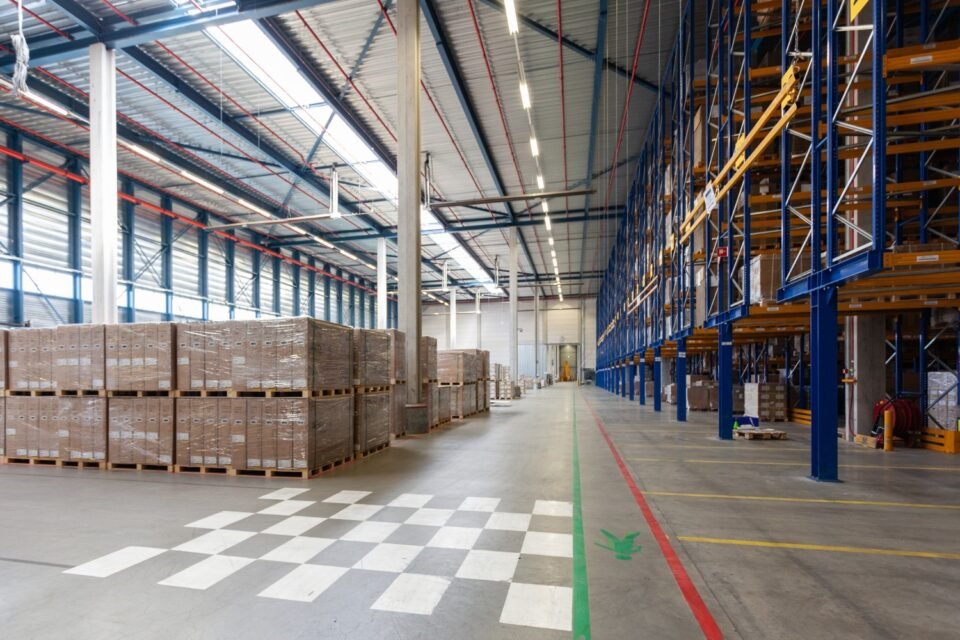A bonded warehouse is a secure storage facility where imported goods can be held without paying customs duties right away. These warehouses are controlled by customs authorities. Businesses store goods here while they wait for proper documentation or decide on future sales. It helps companies manage costs and meet regulations. This system supports global trade effectively.
How Bonded Warehouses Work
When goods arrive from abroad, they can be transferred directly into a bonded warehouse. They remain there without tax obligations until they are sold or moved. Once the goods leave the warehouse for the local market, duties and taxes must be paid. If re-exported, no local taxes are charged. This process offers businesses financial flexibility and customs control.
Types of Bonded Warehouses
There are two main types: public and private bonded warehouses. Public ones are run by third-party logistics companies and available to many importers. Private bonded warehouses are owned by specific companies for their own use. Both are approved by customs authorities and must follow strict guidelines. Each type suits different storage needs and business models.
Benefits for Importers and Exporters
Bonded warehouse help importers delay customs payments until goods are needed. Exporters benefit by storing goods close to key markets, ready for quick shipment. This system also reduces the risk of delays at borders. Businesses can plan better and reduce costs. It’s a strategic advantage in competitive international markets.
Cost Savings and Cash Flow
One of the biggest benefits of bonded warehouses is improved cash flow. Since duties are paid only when goods leave the warehouse, businesses can delay large expenses. This allows more flexibility with budgeting and inventory management. It also reduces the need for immediate capital, helping companies scale efficiently.
Security and Compliance
Bonded warehouses follow strict security rules. Goods are monitored by both warehouse staff and customs officers. These facilities have surveillance systems, access control, and regular inspections. This ensures compliance with international trade laws. For businesses, it means peace of mind and reduced risk of fines or theft.
Storage of Restricted or Sensitive Goods
Bonded warehouses are often used for goods that need special handling or are under trade restrictions. This includes alcohol, tobacco, and high-value electronics. Customs authorities ensure that all necessary permits and approvals are in place. These warehouses offer climate control, restricted access, and specialized services for such items.
Bonded Warehousing and Repackaging
Many bonded warehouses allow light assembly, repackaging, or labeling of goods. This is useful for businesses needing to adapt products for different markets. For example, adding local labels or assembling kits can be done inside the warehouse. These services add value and reduce time-to-market.
Supporting E-commerce and Retail
Bonded warehouses are ideal for e-commerce businesses dealing with international customers. Retailers can store goods near the target market without paying immediate import duties. Orders can be fulfilled quickly while keeping inventory costs low. This flexibility helps companies stay competitive and meet fast delivery expectations.
Strategic Locations and Global Access
Bonded warehouses are often located near ports, airports, and trade zones. This makes transportation quicker and cheaper. Businesses can reach customers worldwide more efficiently. These strategic locations reduce lead times and streamline global operations. It’s a smart way to stay ahead in the supply chain game.
Inventory Management and Technology
Modern bonded warehouses use inventory tracking systems for real-time visibility. These tools help manage stock levels, expiration dates, and order fulfillment. Businesses gain better control over their supply chain. Technology integration ensures accuracy and improves decision-making. This leads to fewer errors and better service to customers.
Working with Customs Brokers and Logistics Providers
Using a bonded warehouse often requires working with customs brokers and freight forwarders. These experts help ensure compliance, manage documents, and speed up customs clearance. Logistics providers also handle transport and warehousing tasks. A reliable partner makes the bonded storage process smooth and efficient.
Who Should Use Bonded Warehouses?
Bonded warehouses are ideal for importers, exporters, and businesses with international supply chains. They benefit companies selling seasonal goods, high-value items, or bulk shipments. Businesses looking to reduce costs, improve inventory control, and streamline operations should consider bonded storage. It’s a solution for small businesses and large corporations alike.
Challenges and Considerations
While bonded warehouses offer many benefits, they also come with responsibilities. Businesses must follow customs rules, maintain proper records, and meet deadlines. Choosing a reliable warehouse provider is crucial. Training staff and understanding local laws help avoid penalties. Planning and communication are key to success.
Conclusion: A Smart Solution for Global Trade
Bonded warehouses offer secure, flexible, and cost-effective storage for global businesses. They help delay duty payments, speed up shipping, and simplify logistics. Whether you’re an importer, exporter, or e-commerce brand, bonded storage can streamline your operations. With the right partners and planning, it becomes a powerful tool for growth and global success.


